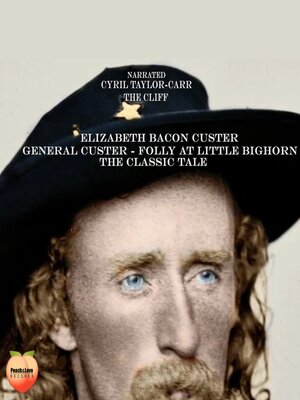
Sign up to save your library
With an OverDrive account, you can save your favorite libraries for at-a-glance information about availability. Find out more about OverDrive accounts.
Find this title in Libby, the library reading app by OverDrive.



Search for a digital library with this title
Title found at these libraries:
| Library Name | Distance |
|---|---|
| Loading... |
Since the Battle of Little Bighorn, George Armstrong Custer (1839-1876) possessed one of the most unique places in American history. Although he was a capable cavalry officer who served honorably during the Civil War, he remains one of the most instantly identifiable and famous military men in American history due to the fact he was killed during one of the country's most well known and ignominious defeats, the Battle of Little Bighorn. And yet, this one relatively insignificant battle during America's Indian Wars has become one of the country's most mythologized events and continues to fascinate Americans nearly 140 years later. Though he's now best remembered for "Custer's Last Stand", Custer mastered the art of public relations, dressing impeccably and having newspaper correspondents accompany him on the campaign, all in an effort to help cultivate and enhance his legacy.
For nearly 58 years, Elizabeth Bacon Custer was probably the most famous widow in the world. In this lively, fascinating, loving portrait of life on the plains with her already-famous husband, Libbie tells a civilized audience of the excitement, fun, and perils endured at a remote frontier post. Intelligent and beautiful, Libbie was a partner, confidant, and booster to the general, as well as an important figure in the social life of the posts he commanded. This book has been used as source material on the general's life as well as the frontier army for well over a century. Celebrated among the prominent people of her day, Libbie never remarried after Custer's death at the Little Bighorn in 1876. She spent the rest of her life writing and lecturing about him, burnishing his reputation and keeping his memory alive. Long a jewel of western Americana, this book continues to find and entertain new audiences in the 21st century.







